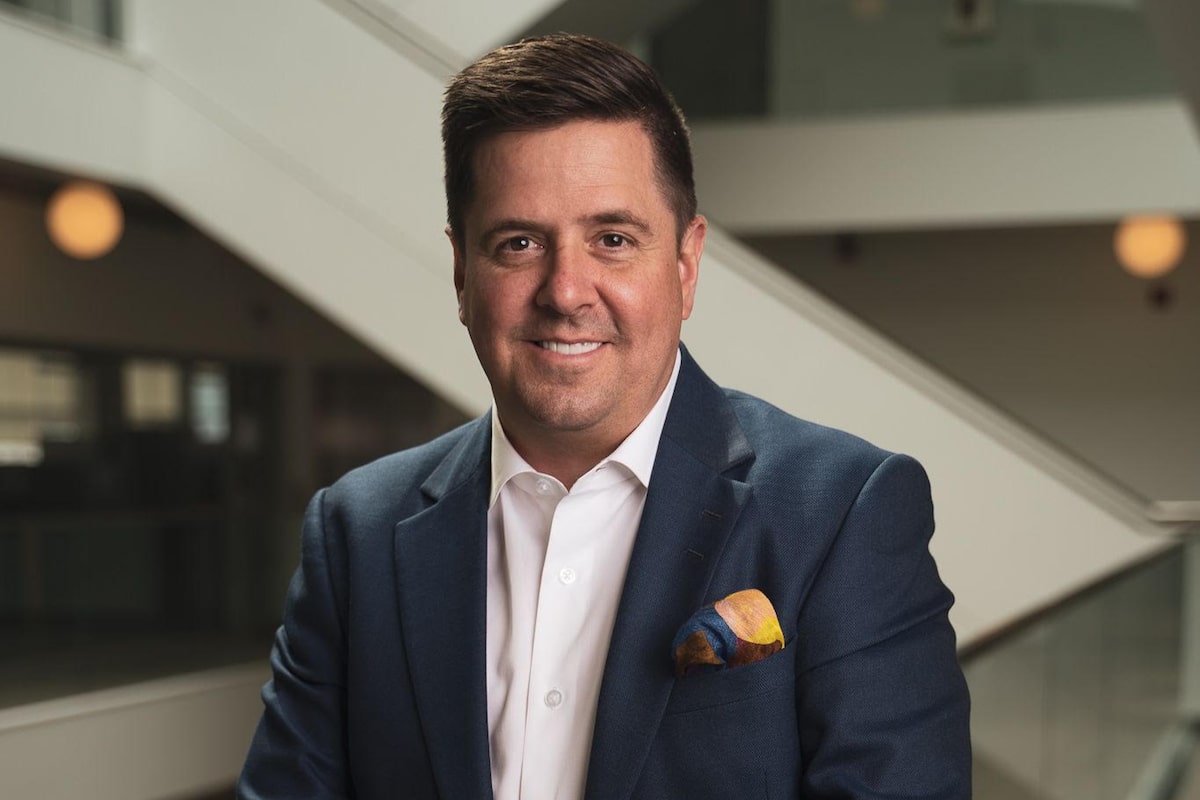Travis Forman, portfolio manager and owner of Strategic Private Wealth Counsel at Harbourfront Wealth Management in Kelowna, B.C.Supplied
In the Behind the Advice series, Globe Advisor asks advisors about their relationship with money from a young age, lessons learned over the years and how their experiences influence the advice they give to clients. We’ve also launched a Behind the Advice podcast – find all the episodes here.
Travis Forman, portfolio manager and owner of Strategic Private Wealth Counsel at Harbourfront Wealth Management Inc. in Kelowna, B.C., talks about his experience with an advisor in his teens, why an early-career move in Hong Kong didn’t work out, and a real estate investing mistake he made in his early 20s:
Describe your upbringing.
I was born and raised on a farm outside Edmonton until I was in the fourth grade, when my parents moved our family to Richmond, B.C.
Both my parents were self-employed. My mother has been in the travel business for years and, in her 70s, continues to run a successful travel agency based in B.C.’s Lower Mainland. My father, who passed away in 2020 at the age of 79, was in the television business. They both had a strong work ethic and passed that along to me and my siblings. I began working at a very young age, starting with a paper route and later working in restaurants as a dishwasher, busboy and cook.
What was your first money lesson?
When I was in my early teens, my mother had her financial advisor visit our house to explain the power of regular savings and compound growth. I recall filling out the paperwork to start my first pre-authorized contribution, which was a couple of hundred dollars. That experience ingrained in me the idea of investing a portion of my paycheque for the future.
When I turned 21 and graduated from university, I had enough money for a down payment on my first home, a one-bedroom condo in Steveston, B.C., [about 20 kilometres south of Vancouver]. Of course, that was back when it was easier for younger people to enter the real estate market.
How did you get into the financial services industry?
Growing up, I knew I wanted to be in a fast-changing industry. I narrowed it down to advertising or finance. After graduating with a degree in economics from Simon Fraser University, I moved to Hong Kong and landed a job at a public relations firm that represented a France-based global advertising agency.
It wasn’t what I thought it would be. First, it was during the 1998 Asian financial crisis, so it was not a good time to be in Hong Kong. Second, I was disenchanted with my low-level position. As a novice in the real working world, I had expected to jump right into creating car commercials, but that wasn’t the case. Last but not least, if I’m being honest, I was lonely and looking for a reason to come back. I had never moved away or even travelled on my own before.
I moved back home to British Columbia and got a job at Royal Bank of Canada, first as a teller. I wanted to move into financial planning and ended up getting a job at Investors Group. From there, I joined Harbourfront.
What is the biggest money mistake you’ve made, and what did you learn from it?
I got a little ahead of myself with real estate investing early in my career. I had great success from 2001 to 2008, buying and selling properties, but then the global financial crisis hit. I had to close on a property, and I couldn’t sell another to raise the capital. Ultimately, I had to leave the deal and the deposit on the table. I learned to be prepared for a worst-case scenario. Structured leverage is good, but it’s important to have a backup plan and an exit strategy.
What’s the hardest piece of money advice for you to follow?
Avoiding the pull of investment fads. FOMO – fear of missing out – is real, especially when there’s a buzz around the latest high-flying asset or trend.
To be clear, I’m not saying new asset classes can’t emerge or that innovative companies can’t become leaders in their spaces. They absolutely can – and it’s important that our allocation philosophy evolves to reflect that over time. But chasing every rising tide just because it’s flashy and fast-moving, especially when we don’t fully understand it, isn’t how we operate.
It’s easy to feel like you’re missing out, but we’ve seen how this story ends more than a few times. That’s why we rely on our discipline, models and methods – because they work.
What are you best at when it comes to your own finances?
It’s related to the last question: I’m good at not being influenced by or getting emotional in the face of day-to-day or month-to-month volatility and, instead, staying the course with my long-term investment philosophy for myself, my family and my clients.
What advice do you have for someone who wants to enter your business?
Learn as much as you can and never stop learning; be a sponge for information. And while you need to understand the foundations of the industry to succeed, try to be different when it comes to developing your practice and persona. Carve out your own path: It will help you find your niche and separate you from the rest.
This interview has been edited and condensed.

